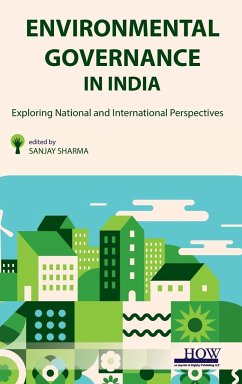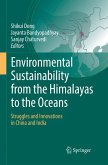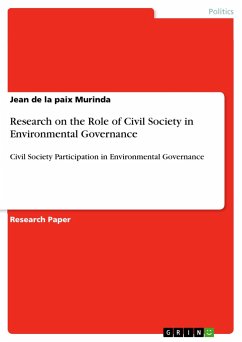Our pursuit of material development is largely responsible for the present environmental crises. The environmentalists are demanding recognition of nature's rights to restore the environmental degradation. In the environmental discourse, we find two diverse perspectives namely- homocentric and ecocentric. The homocentric perspective holds that man's interests/rights prevail over the rest of nature. Alternatively, the ecocentric perspective emphasises that man owes a responsibility to nature. However, how to define the rights of nature is a problematic issue and this is the focal point of environmental governance. Nevertheless, it has been strongly argued by political theorists that nature has its rights, and man has a moral responsibility to protect these rights. In this context, the present book explores environmental governance in India with national and international perspectives. It questions our model of development, emphasises the right of nature, and explores environment-friendly ways of development. In the discourse of environmental governance, it critically applies relevant case studies with theoretical analysis.
Hinweis: Dieser Artikel kann nur an eine deutsche Lieferadresse ausgeliefert werden.
Hinweis: Dieser Artikel kann nur an eine deutsche Lieferadresse ausgeliefert werden.








